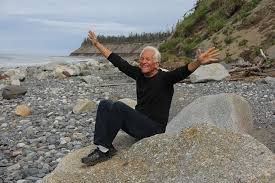
In 1981 men lagged behind women by six years.
A 60-year-old living 100 years ago would have been considered a frail person. However, nowadays they might be viewed as middle-aged, living healthy and happy lives.
I recall reading books about that era where the old mother called for food from the confinement of her bed. Nowadays, most people remain active despite their disability. Like me. I drag myself from room to room to maintain order in my home. Every day, I force myself to take a walk outside with my rollator. Only then, do I appreciate the wind on my face and the birdcall. I don't take pain relief, believing it is best to accept whatever comes and try to adapt like bamboo swaying before the wind. Stiff branches snap.
Though life expectancy is shown to be improving for both sexes, it comes at the cost of widening inequalities between deprived and affluent areas. The researchers, from Imperial College London, predict by 2030 men will be living 2.4 years longer than official estimates from the Office of National Statistics suggest. Women gain an extra year.
Click here for your life expectancy calculator. It's American, but values can be worked out for other countries. Here's a stone to pound calculator.

As an aside, all the questions on health were in my favor. The only drawbacks for me were concern about my husband's health, his smoking, and him, at the age of 76, driving me around. So, my husband will be the death of me.
Life expectancy has risen in developed countries from about 47 in 1900 to about 80 today, largely due to advances in curing childhood diseases. But those longer lives come with their share of misery. Age-related chronic diseases such as heart disease, cancer, stroke and Alzheimer’s are more prevalent than ever. Why would anyone want to go on living in a pain-riddled body?
“A lot of people spend their last decade of their lives in pain and misery combating disease,” says Craig Venter, San Diego based pioneering biologist and billionaire entrepreneur who raced to sequence the human genome. “I think it is possible to begin to do more about that than we are doing.” Venter, 68, announced his new company, Human Longevity, to promote healthy ageing using advances in genomics and stem cell therapies in March 2014.
In the end, a healthy lifestyle has been identified as the key to staying fit and well into old age.
And so comes the question: How long do you anticipate living?





 RSS Feed
RSS Feed
